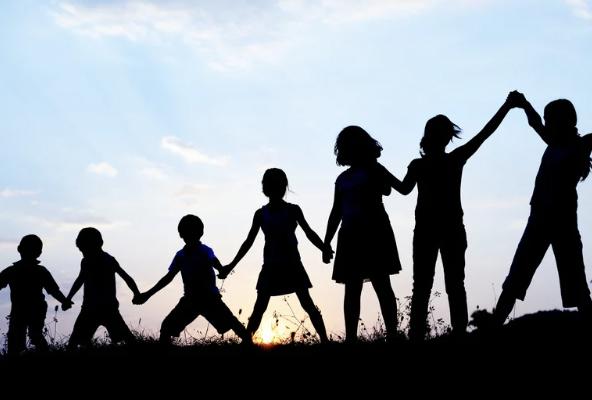Social development is a vital part of child development. Social skills are the tools children use to express their emotions feelings, to interact and communicate with others. Communication can be of two types: verbal or non-verbal, which includes body language, gestures, facial expressions, and speech. Social skills enable children to behave according to situations and teach them to interact with others. This also aids children to have a strong personality, improved self-esteem, and better learning skills and makes children focus on their studies. Social skills that are developed well lead to improved cognitive skills in children for their better school years and provide good mental health. Lack of social development causes failed relationships with siblings and friends, poor communication, loneliness, and behavioral issues.
Techniques of social development
Constructive home experiences
For improved social development among children, positive parenting is essential. A strong positive relationship and sensitive parenting are both the influencing and shielding factors that aid in developing better social interactions. Children learn to deal with social situations conventionally. Start teaching children about social rules at an early age for better interactions. We should not scold or rebuke them for their slight mistake in behavior and point them out gently.
- Teach them how to maintain their tone of voice, volume, gestures, and facial expressions according to situations and how to react under specific conditions.
- Children learn not by teaching but by observing the people around them.
- Peer interactions aid children in developing language skills and make them able to learn social rules.
Proficiency
Parents’ guidance helps develop language skills. We must watch children’s interaction with others as their friendship significantly impacts their social development, behavior, character, personality, and language. Good friends can help the child to have strong and positive self-esteem, confidence, peer relationships, better grades, and better social adjustment. Poor friendship can damage a child’s personality and raise antisocial behavior, high conflicts, and rivalry. The emotional skills of children are highly associated with their social behavior, so emotional support is needed for positive behavior.
Develop Non-verbal communication
Poor non-verbal communication leads to failed relationships. If the child cannot decode the tones of voices, gestures, eye contact, and facial expressions, they may have misconduct actions, leading to failed relationships with others. Take guidance from caregivers and professionals to develop social skills and healthy behavior. Social reinforcement helps develop positive child behavior. Children learn from their parents and adults’ behavior toward them and others, and social competence helps children achieve their social development goals.
Active listening
We need to make our children learn empathy to become active listeners. If the child understands the feelings and emotions of others, they will have better social skills. We can teach empathy to our children by talking about different situations and asking them how they will react to the problems. This will help them develop their personality and listening abilities and better handle the conditions.
Identify the personality
Every child is different, so expecting the same from each child is a debased act. An introverted child can’t be as expressive as an extrovert, so know the limit of children. Make introverted children open up and interact with others, but do not force them to do so. Give them time so they get comfortable and behave calmly to them.
Conclusion
Social development is a skill that aids in communication and interaction with others. We must make children learn social skills early and start from home. Children learn more by observing rather than by making them teach forcefully. Do not point out children harshly in front of others; instead, guide them about their bad behavior and make them change it. Watching their company and friends as a quality friendship can be helpful for better social development. Verbal and non-verbal types of communication are necessary. If the child cannot decode gestures, eye contact, or body language, it can impact their personality and cause social distancing. Social competence and reinforcement are the keys to improved social development skills in children.

